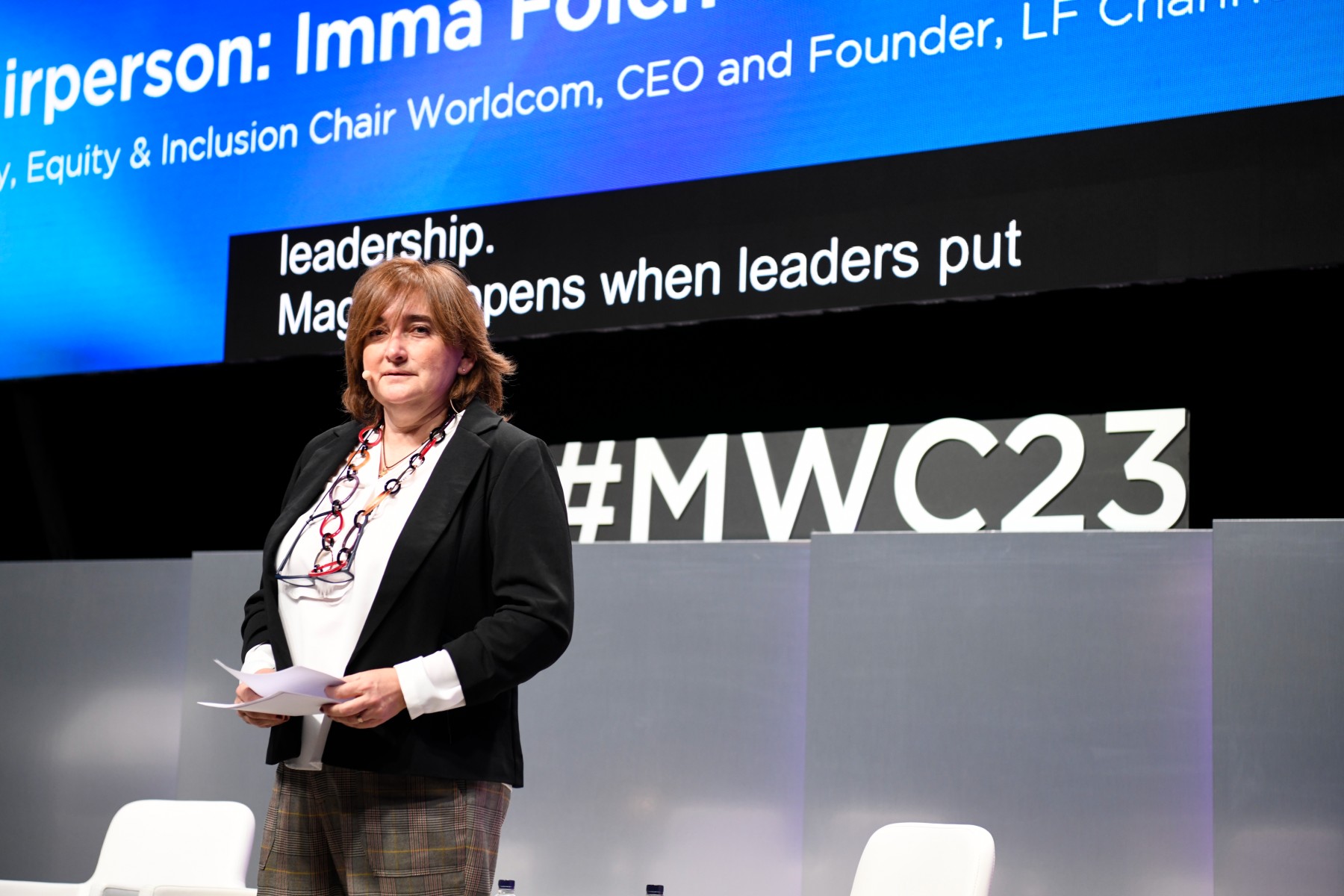Last week, we had the pleasure of attending the #MWC and #Diversity4tech conferences where Imma Folch, founder and CEO of LF Channel, moderated a panel discussion.
Imma Folch explained that inclusion policies and practices create more engagement among employees and that companies that promote diversity and inclusion retain more talent. These reflections were latent throughout the #Diversity4tech conferences. To achieve equity, barriers need to be removed, inclusive environments created, and resources and opportunities made available to everyone, equally.
This year, an important message was sent: there is a collective commitment in the mobile ecosystem to accelerate change toward a more diverse, equitable, and inclusive society. The #Diversity4tech brought together two days of thought leaders with expertise in #diversity and #inclusion who shared what they were doing in their companies to foster DEI leadership. Putting people at the center of innovation and value creation.
Inclusion is an opportunity
Several experts agreed on two important arguments raised during the panel discussion. Firstly, inclusion is an opportunity, and secondly, measuring and managing data are essential.
During #Diversity4tech, interesting thoughts were raised around the role of diversity, equity, and inclusion in the industry and what the commitment of organizations should look like. “Diversity and inclusion drive companies’ success,” explained Benjamin Ramirez, Head of Culture, Change & Diversity at Seat.
The participants discussed the importance of equity in work teams and how inclusion fosters talent development and project growth. “We must believe and convince ourselves that inclusion is an opportunity,” explained Justina Nixon-Saintil, Vice President and Corporate Social Responsibility and ESC at IBM. The founder of The Valuable 500, Caroline Casey, said: “If we don’t have leaders who take action for inclusion, nothing will change”.
On the first day, Errol Gardner, Global Vice President of EY, highlighted the relevance of promoting the inclusion of women in the technology ecosystem and that this motivation, should start in schools and classrooms. In this way, the idea that all of us can opt for the same positions and roles regardless of our gender or origin was extended.
Along these lines, the premise was added to the debate that the more diversity increases in the executive ranks, the more it will increase throughout the organization, a reflection that was also raised by Imma Folch.
An organic and internal process that Elizabeth Tchoungui, Executive Director of CSR, Diversity and Solidarity of the Orange Group, spoke about. Offering equal training to all employees and encouraging their growth and sense of belonging to the organization were some of the conclusions.
Measuring and managing data on diversity, equity, and inclusion
Another of the important reflections given during the #Diversity4tech presentations revolved around data management in the DEI environment. A CEO of Colt, Keri Gilder, emphasized the importance of data extraction and measurement in the DEI domain to promote diversity and inclusion. She said that “if we don’t measure how employees feel, whether they feel included or not, we won’t be able to do anything. Moreover, they must see that with the information we obtain, we are doing something: real actions to promote diversity and inclusion for everyone,” she explained.
The topic of diversity management from a talent perspective was also discussed, as Caroline Casey pointed out: “How important it is to understand the talent within our teams and to know them. Knowing what they think, how they feel, what they want”, said the Founder of The Valuable 500.
This a reflection that was ratified during the interview that Imma Folch conducted with Kristen Nichols, Senior Vice President of Global Business Operations at Cisco Networking. Nichols praised the importance of listening to work teams, knowing how they feel in the organization if they feel listened to, and promoting proximity between leaders and teams. “Diversity and inclusion policies and practices have to promote a systemic change that is widespread in the organization and that everyone is part of,” said Nichols. Something Mary Clarke, director of Sticky Change also referred to. “Those in leadership positions are the ones who have the opportunity to bring about change,” she explained.
It was a pleasure to attend #MWC again, and we look forward to promoting diversity and inclusion year after year. Proactive industry leadership and measurable actions are key pieces to fostering diversity in organizations.
Irene Coll
RSC & DEI Manager
